
Don't worry, I'm not trying to get you to play Global Thermonuclear War, since as we all know, the only way to win is not to play. And we want to play. Okay, enough with the mandatory classic movie references.
There are, of course, tons of games for the Linux platform if you're willing to install Steam. For the sake of this article, however, I want to show you some games that are available native to Linux—none of this firing up Java so you can play something on your Ubuntu, or Fedora, or Debian or whatever your personal flavor of Linux happens to be.
I also want to stay away from the classics. Sure, I know, Frozen Bubble is awesome and always has been awesome. Ditto for SuperTux or SuperTuxKart. They're all fantastic, and if you don't know those games, be sure to check them out after you finish reading this. In fact, if you fire up your distribution's software center and search the repository, you're going to find a ton of games. I'm writing this on a computer running Kubuntu 18.04, and Discover, the default software center, has a big section dedicated to games (Figure 1).
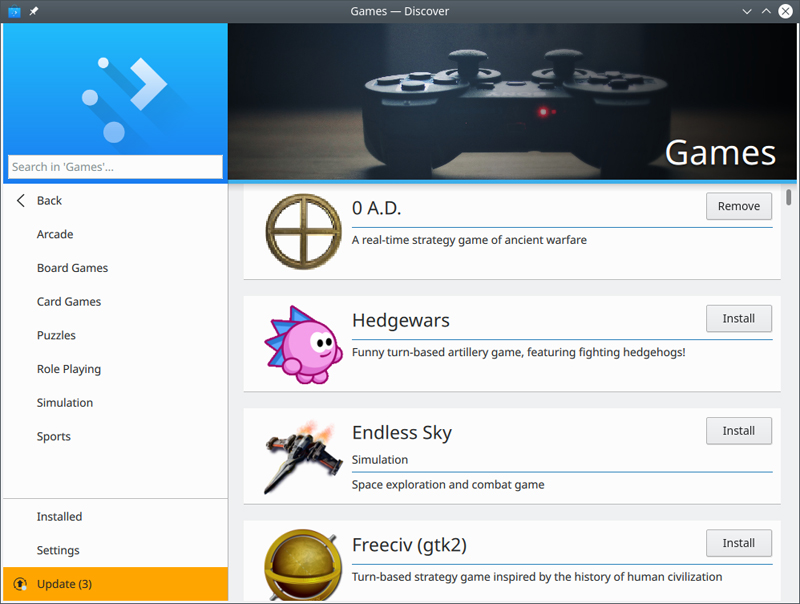
Figure 1. Discover is the Kubuntu and Plasma default software center.
That said, I want to take you out of the classic Linux comfort zone for games and show you something you may not have considered. In short, if you've got the itch to try something new, I may very well have a way for you to scratch that itch. While looking around for great game ideas, I started off scouring the web for anything I might have missed in recent days or weeks. So much of what I found was either oldies and goldies (hello again, Frozen Bubble) or Steam. And then, I tripped over itch.io, a place I had somehow totally missed before.
Here's a short introduction. itch.io is a website for indie game designers to share their passion with the public. You can download a game, pay what you like (or can afford) and communicate with the developer as the game matures. The nature of the site is going to seem very familiar to anyone who has been in the open-source universe for any length of time. There's a lot of releasing early and some releasing often. Because players can interact directly with developers, you can influence the design of games you love.
Here's another cool thing. The site, like Steam, has an app you can download and install on your Linux system that acts as a storefront for all the games, as well as a place to track, install and run said games. They maintain DEB packages for Ubuntu and Debian derivatives, RPMs for Red Hat/Fedora and openSUSE, AUR packages for Arch Linux distros, and there's even something for the Gentoo crowd. Figure 2 shows a look at the storefront opened to Linux games. It's a veritable gold mine of new gaming opportunities for the Linux lover in you.
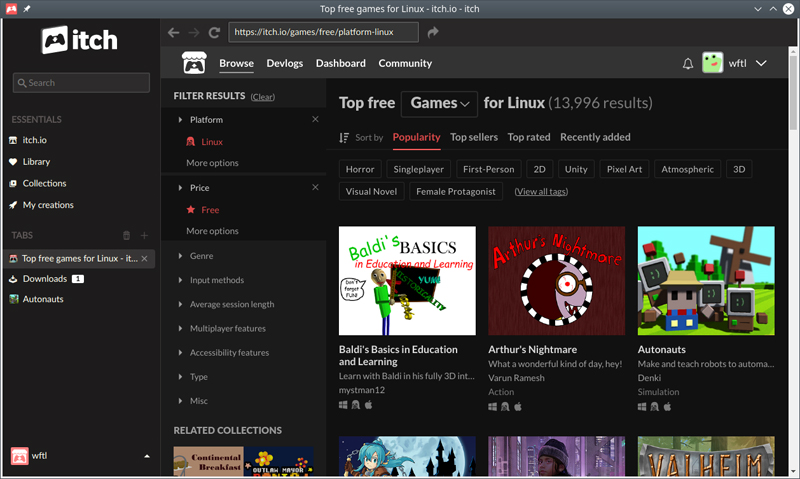
Figure 2. The itch.io Storefront and App
I'll take two seconds and mention that you also can search for and install Windows and macOS games as well, for people who still run those. The app also lets you search by whether the games are completely free (or pay what you like), popular, new, highly rated or of a particular genre (such as FPS or RPG). To the right of the app, you can choose to organize your game library as you see fit and launch the games from there.
The games are listed in a grid on the right. Scroll up or down to find something you like, then click a title to learn more about it. If you simply hover over a particular game, a small windowed description panel will pop up; from there, on some of the games, you can choose to play a game trailer (Figure 3).
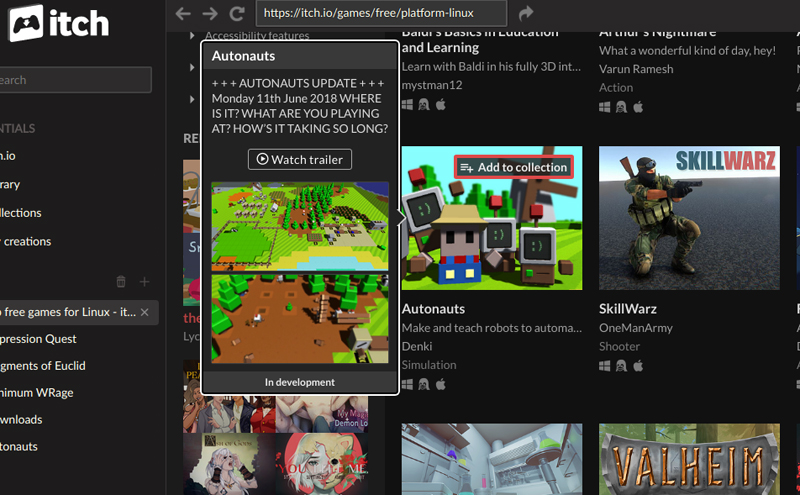
Figure 3. Hover over a title to show a small descriptive pop-up
When you click a title for the full description, look to the far right below the game thumbnail for an Install button. Directly below that, depending on the game, you may see an option to tip the creator for his or her work on creating the game (Figure 4). When you are ready, click Install, and everything happens in the background. Assuming you haven't wandered away from the description, the Install button will turn into a Launch button from which you can, you guessed it, launch the game.
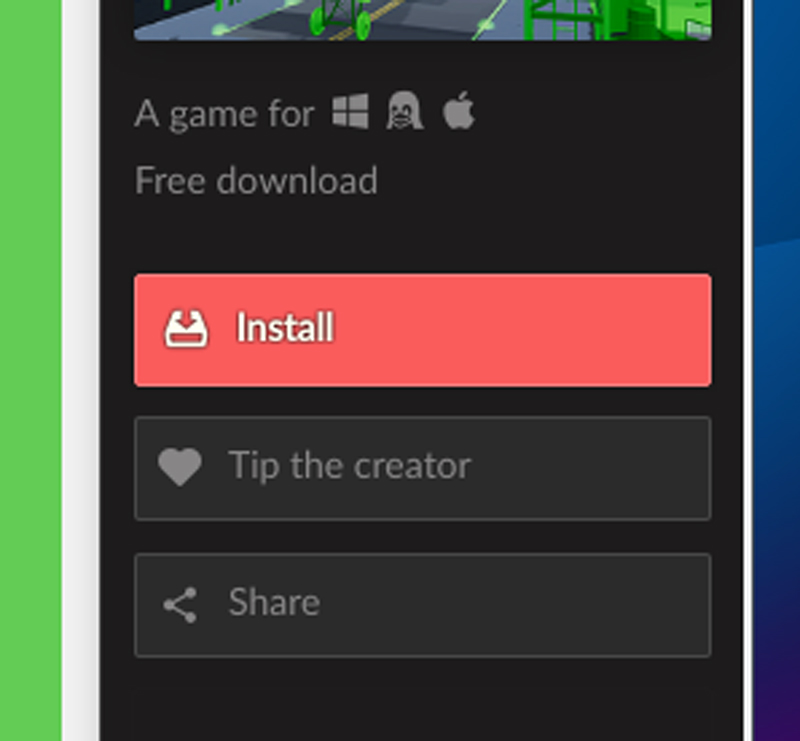
Figure 4. Install a game, and maybe give a little something to the creator.
Eventually, you'll install several games, and your games all will appear under the Library button to the left of the itch.io app. Directly below that, there's a collections button, as each game you download can be added to your personal collection where you organize things as you see fit. Whether you look at the entire library or a defined collection of game types, now it's just a matter of clicking the Launch button.
When you launch a game, a configuration dialog appears offering you a variety of screen resolutions on the left from which you can select what works best for your particular monitor (Figure 5). Directly below the resolution list is a check box that allows you to choose either full-screen (the default) or windowed play. On the right is the graphics quality listed from Fastest through to Fantastic. Needless to say, fantastic graphics may deliver slower performance on lesser systems. Use what works best for you.
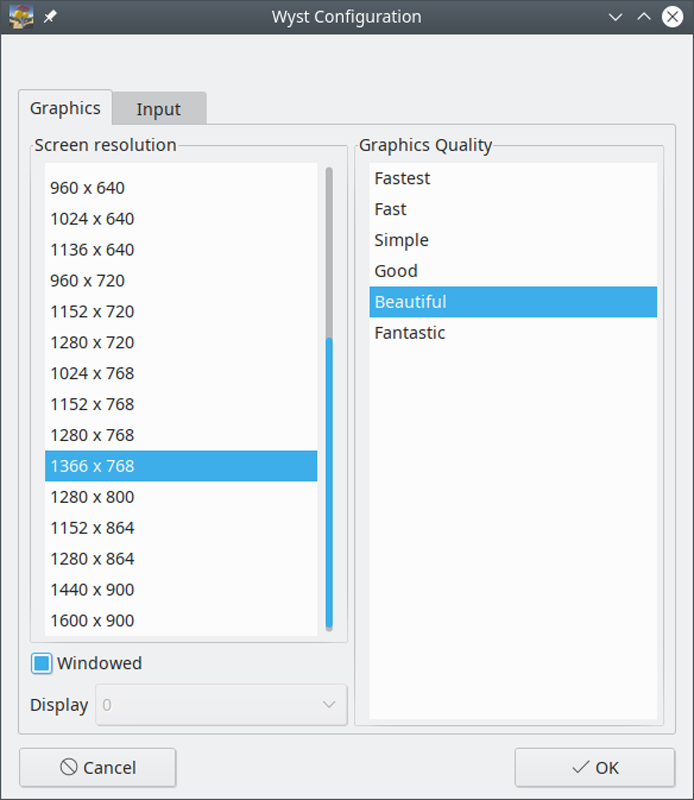
Figure 5. Each game lets you select both screen resolution and quality.
Click OK and let the fun begin!
Let me show you a few games that I found and enjoyed, starting with Autonauts. At first glance, Autonauts looks like a Minecraft-ish sandbox game, and certainly there are some elements of that—you collect resources, craft things, build and so on. Autonauts, short for Automationatics, are artificially intelligent robots who travel the universe looking for worlds whose development they can assist (Figure 6).
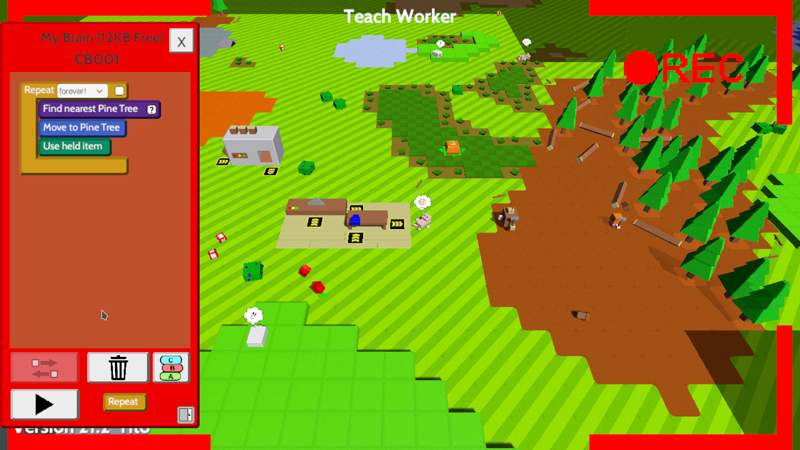
Figure 6. Programming a new robot to find and cut down trees.
They take advantage of local resources to build a basic infrastructure from which they can build other robots. When new robots come online, the more advanced Autonauts can train them to perform tedious tasks like collecting resources and building stuff. You do this by having new workers watch you and record what you do, so that they can then be left to operate on their own. As the society evolves, increasingly complex workerbots can perform increasingly complex tasks. The idea is to continue churning out robots, automating everything that can be automated so as eventually to create a modern, efficient society.
I took a break from playing to chat with Aaron from Denki Games, the creator of Autonauts. The game has a Discord link where you can chat with the creator and with other players, and that's where I found Aaron. I asked him what he thought of the itch.io concept, and he answered "We've known about Itch for a while. I'm more interested in experimental than mainstream games in general, so I'd come across it long before we started Autonauts."
When I told him that it reminded me of the Steam store and front-end app, he said, "I think that's a fair comparison. For us, it allowed us to experiment with our ideas without the harsh, critical spotlight of Steam Early Access. People are a lot more forgiving on Itch. :-)"
Realism is great, but I don't need my wargames to have the smell of soldier sweat mixed with blood and mud. That's why I loved Attack On Toys, a wargame third-person shooter where you fight with plastic toy soldiers. You command the green army against the tan army. There is strategy involved as you place your defences before each battle, so it's not just shoot and hope for the best. There are different vehicles you can ride in, including an airplane, and different weapons. The enemy also has a big mechanical soldier/robot that you have to defeat. The action takes place in a large room, across tables and chairs and bookcases (Figure 7). It's really kind of awesome if, like me, you're still six years old on the inside.
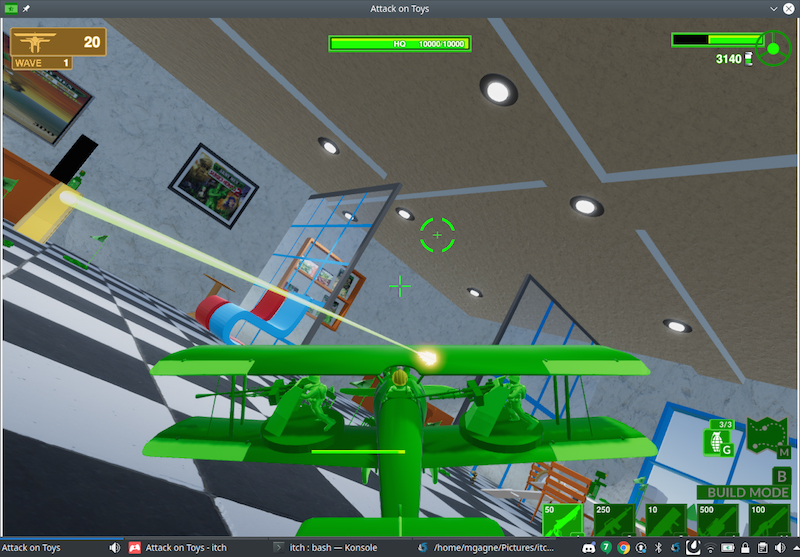
Figure 7. Taking to the skies in Attack on Toys.
Then, there's Naufrage, a bizarre adventure without rules. The game opens with you dropping a coin into an arcade machine, and suddenly you are following the coin and dropped onto a mysterious island. Ahead of you is a silent amusement park, shrouded in darkness, with a silent ferris wheel beckoning you (Figure 8). As you explore this place, you soon discover you're not alone, although you wander in solitude. A wonderfully creepy soundtrack accompanies you as you decipher puzzles, read cryptic messages and follow signs that are often anything but helpful. It's frankly hard to explain Naufrage—a French word meaning "shipwreck"—but it's definitely worth the peaceful yet foreboding journey across and around this island.
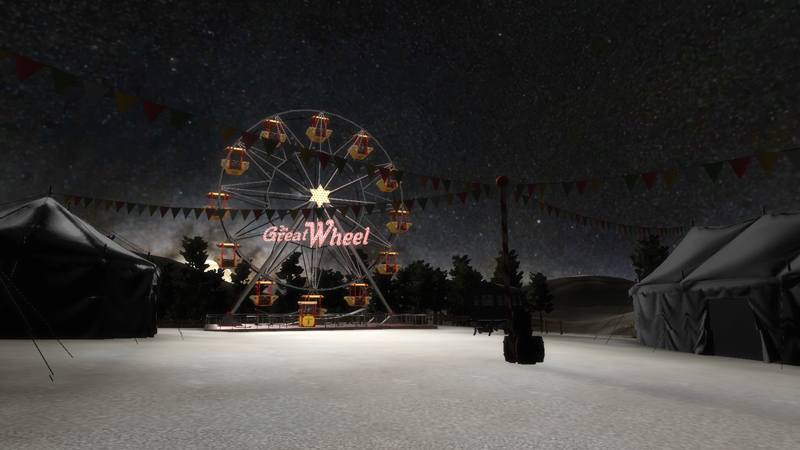
Figure 8. The Mysterious Island World of Naufrage
What I love about Naufrage is the nearly complete absence of rules. Using either cursor keys, or the classic WASD to move and spacebar to jump, the entire point of the game is to figure it out as you go along.
Although I enjoyed the experience, it did make me wonder about the commercial possibilities for some of these games. Like many open-source projects past and present (but mostly past), games on itch.io seemed to be designed to scratch a developer's itch. Never mind whether the game was going to make somebody rich—much of what I encountered seemed to come from a place where the desire to make something spring from that inner-creative place was powered by the thought that somewhere out there, other kindred spirits might enjoy it.
You see, the independent and experimental nature of the site means you're going to find games for your Linux system that you aren't likely to run across anywhere else. Are you ready to make $7.50 an hour, actually fighting other employees for a promotion only to face off against a boss who literally happens to be your boss? Try Minimum WRage. How about an interactive story about gay girls playing baseball and learning about love (Butterfly Soup)? Or a horror version of Arthur the cartoon aardvark (Arthur's Nightmare)? There's also a bizarre game that drops you into a strange world of M.C. Escher architecture to discover...who knows what (Fragments of Euclid). Should you just want to burn off a little tension, choose one of the many first-person shooters, like Rexuiz, and try your best to stay alive for more than a few seconds.
The selection is huge, and I feel like I've just touched the tip of the proverbial iceberg. Some are silly and just plain fun, and others will have your heart pounding. There also are some pretty disturbing and occasionally terrifying titles in there, so make sure you read the descriptions before installing anything—unless you're one of the brave ones, without fear. Another surprise, for me at least, was the large number of Otome games like The Blind Griffin (Figure 9). For the uninitiated, as I was, these are anime-style and story-based games aimed at women (otome is Japanese for "maiden").
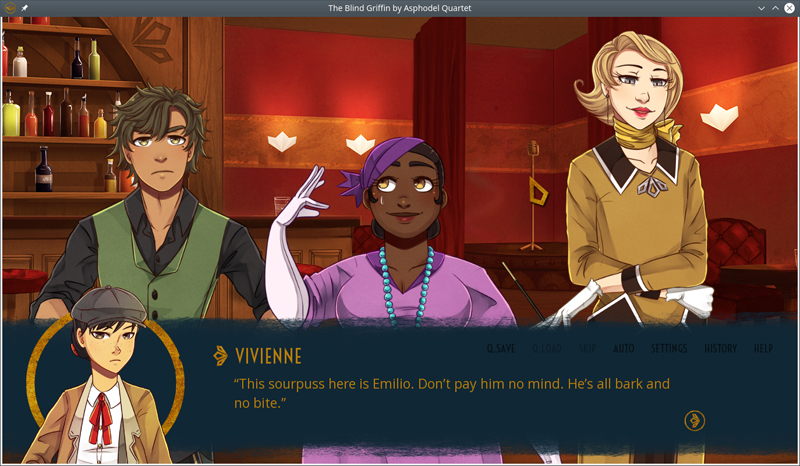
Figure 9. The Blind Griffin, an Otome Game
Don't be afraid to venture outside the classics available via popular Linux distribution repositories or Steam. People have grown used to thinking of Steam as the place to go for great games on Linux, and it makes sense given the quality of those offerings. Steam even has its own Linux distribution, so it's definitely playing in our court—most of the time. But beyond those repos and Steam's catalog of games, I'm happy to report that there's another world where independent developers create games and chat with their fans on Discord channels.
You should really check it out.
Classic Linux Games:
itch.io Games Mentioned in This Article:
Marcel Gagné is Writer and Free Thinker at Large. The Cooking With Linux guy. Ruggedly handsome! Science, Linux and technology geek. Occasionally opinionated. Always confused. Loves wine, food, music and the occasional single malt Scotch.